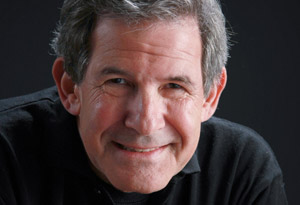Gary Zukav: Why Painful Things Happen To Good People
The author of The Seat of Soul and co-founder of the Seat of the Soul Institute explains.

Photo: Pay404/iStock/Thinkstock
Let's say you usually shout when you become angry. Shouting in anger pushes people away, because they are intimidated, and so you become isolated. The more isolated you become, the angrier you become, the more you shout, and the more isolated and lonely you become, even if you are surrounded by people. This is because the people who surround you will absorb your energy. They will also be angry, and judgmental. They will find faults with others and live their lives as righteous victims. They will try to convince others of the wrongs and injustices they see and of their own superiority. When they succeed, they will bond with those people. Their group will become larger and always in conflict with any group that doesn't include them. If you are an angry person, is this what you want to create? If so, continue to act in anger, and you will.
Here is another example. Some people feel good about helping others, and they do so often. They do not realize that their good deeds have a second agenda. They want to be appreciated. When caretakers give and give and do not receive appreciation, thanks or even acknowledgement, they become resentful. That resentment grows over time and eventually turns to anger, and then explodes at the people who are not thankful or appreciative. People at first enjoy the caretaking, but after a while, they avoid it unless they desperately need it, because it feels "sticky." It comes with strings attached and unspoken obligations. The more people resist it, the more unappreciated and resentful and angry the caretaker feels. Is this what you want to create? If so, continue to caretake, and you will.
Caretaking is different from caregiving. Caregiving has no second agendas or hidden motives. The care is given from love for the joy of giving without expectation, no strings attached. It cannot be manipulated or discouraged, because love cannot be manipulated or discouraged. Caregivers attract caregivers and live in a community of love. They are energized by their caring and fulfilled. Caretakers attract caretakers and live in the company of resentful victims who see themselves as misused and are fatigued from constant giving with no return.
Caregiving requires the intention of love; caretaking requires the intention of fear. Not acting in anger when you are angry requires the intention of love. Shouting when you are angry requires the intention of fear—the intention to manipulate, control others, and pursue external power. When you know your intention, you are in a position to choose the consequences that you will create for yourself. If you choose an intention that creates consequences for which you are willing to be responsible, that is a responsible choice. Further, when the intention you choose is love, you create authentic power.
To learn more about authentic power, visit SeatoftheSoul.com and readThe Seat of Soul. You can send questions to me at gary@seatofthesoul.com and I will answer as many as I can on my website.
More from Gary Zukav
Here is another example. Some people feel good about helping others, and they do so often. They do not realize that their good deeds have a second agenda. They want to be appreciated. When caretakers give and give and do not receive appreciation, thanks or even acknowledgement, they become resentful. That resentment grows over time and eventually turns to anger, and then explodes at the people who are not thankful or appreciative. People at first enjoy the caretaking, but after a while, they avoid it unless they desperately need it, because it feels "sticky." It comes with strings attached and unspoken obligations. The more people resist it, the more unappreciated and resentful and angry the caretaker feels. Is this what you want to create? If so, continue to caretake, and you will.
Caretaking is different from caregiving. Caregiving has no second agendas or hidden motives. The care is given from love for the joy of giving without expectation, no strings attached. It cannot be manipulated or discouraged, because love cannot be manipulated or discouraged. Caregivers attract caregivers and live in a community of love. They are energized by their caring and fulfilled. Caretakers attract caretakers and live in the company of resentful victims who see themselves as misused and are fatigued from constant giving with no return.
Caregiving requires the intention of love; caretaking requires the intention of fear. Not acting in anger when you are angry requires the intention of love. Shouting when you are angry requires the intention of fear—the intention to manipulate, control others, and pursue external power. When you know your intention, you are in a position to choose the consequences that you will create for yourself. If you choose an intention that creates consequences for which you are willing to be responsible, that is a responsible choice. Further, when the intention you choose is love, you create authentic power.
To learn more about authentic power, visit SeatoftheSoul.com and readThe Seat of Soul. You can send questions to me at gary@seatofthesoul.com and I will answer as many as I can on my website.
More from Gary Zukav



